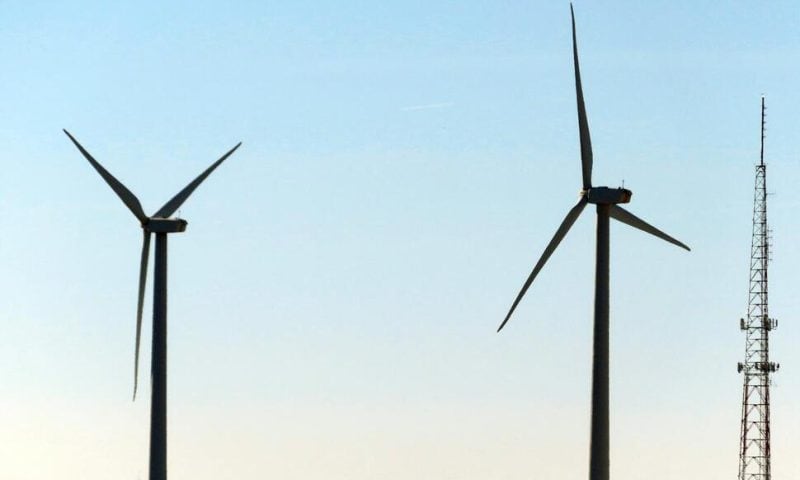Danish wind farm developer Orsted will pay New Jersey $125 million to settle claims over the company’s cancellation of two offshore wind farms last year
ATLANTIC CITY, N.J. — Danish wind farm developer Orsted will pay New Jersey $125 million to settle claims over the company’s cancellation of two offshore wind farms last year — a little over a third of what the company once was required to pay.
The state’s Board of Public Utilities said Tuesday that New Jersey and Orsted have settled claims against each other stemming from the company’s decision last October to scrap two wind farms off the state’s southern coast.
The state said the $125 million it will receive will be used to support investments in wind energy facilities, component manufacturing facilities, and other clean energy programs.
Before the projects were abandoned, Orsted put up a $100 million guarantee that it would have one of them, Ocean Wind I, built by the end of 2025. It also had been obligated to pay an additional $200 million toward the development of the offshore wind industry in New Jersey.
A week after scrapping the projects last fall, Orsted said it was trying to get out of the $300 million worth of guarantees because it was no longer pursuing the projects.
Orsted, in a statement to The Associated Press, said it is “pleased” with the settlement, which it said represents the company’s total financial obligation to the state.
The agreement, along with other moves announced Tuesday by New Jersey, “underscore New Jersey’s commitment to offshore wind and the industry’s bright future in the Garden State,” it said.
“While we advance clean energy projects throughout the region, we look forward to continuing valuable partnerships with New Jersey stakeholders,” the statement read.
The company would not say if it plans to propose future projects in New Jersey.
But Jeff Tittel, a longtime environmentalist and retired president of the New Jersey Sierra Club, called the settlement with Orsted “a sellout.”
“The governor said they would be held responsible for the entire $300 million they owe the state for their failed project,” he said. “They are being let off the hook, paying less than half, with New Jersey losing $175 million. This is a bad deal for New Jersey.”
The settlement announcement was one of several that the administration of Democratic Gov. Phil Murphy made Tuesday regarding offshore wind.
The state said it is moving up the next solicitation for additional offshore wind projects from the third quarter of 2026 to the second quarter of 2025. New Jersey’s current round of solicitations closes on July 10.
The state also said it is pausing plans to coordinate power transmission planning for offshore wind projects with the regional grid operator, PJM Interconnection due to a new rule by federal energy regulators that could affect planning and costs.
“Offshore wind development remains a once-in-a-generation opportunity that will result in significant economic and environmental benefits throughout the Garden State,” Murphy said in a statement. “At this pivotal inflection point for the industry both in New Jersey and across the nation, it’s critical that we remain committed to delivering on the promise of thousands of family-sustaining, union jobs and cleaner air for generations to come.”
Orsted wrote off $4 billion last fall, due largely to costs associated with the cancellation of its two New Jersey projects. The company cited supply chain issues, inflation and a failure to gain enough government tax credits.
There are currently three preliminarily approved offshore wind projects in New Jersey.
The state is home to vociferous opposition to offshore wind by numerous groups who say the projects are too costly and are potentially harmful to the marine environment.
Protect Our Coast NJ said the move to accelerate offshore wind contracts “reflects the shifting political landscape in Washington and in New Jersey,” calling Murphy’s clean energy goals “arbitrary and unrealistic.”
Supporters say they are an important way to move away from the burning of fossil fuel that contributes to climate change.

